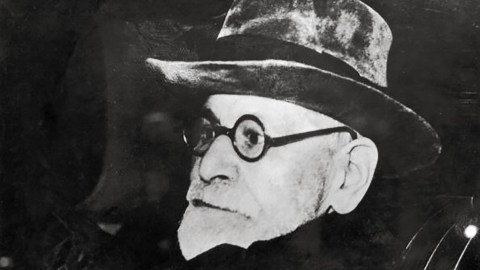To Give Yourself Great Advice, Get Outside Yourself

At one point in time, everyone has found themselves muttering advice to themselves in the second person. We might say, “Can’t believe you did that!” or, “How could you forget your keys again?”
Turns out, it’s not crazy; it’s therapeutic. European researchers created a virtual reality simulation where participants could give advice to themselves — as Sigmund Freud. In the experiment, “volunteers wore very sophisticated VR (virtual reality) devices (headset and sensors) and were immersed in a virtual room where there was a duplicate representation of themselves and Sigmund Freud. The subject could alternately be in the avatar body representing themselves or in Freud’s body. The movements of the avatars … were perfectly synchronized with the subject’s real movements, and this produced a powerful illusion of embodiment.” The result was not only that people felt better, but also their advice was much more effective.
No matter how you open up, as Freud once advised, “being entirely honest with oneself is a good exercise.”
Self-awareness training is also the hallmark of non-violent communication, commonly referred to as NVC. In short, NVC teaches a person to be empathetic to themselves first before attempting compassion with another person. The reasoning behind this approach is that people often confuse their needs, feelings, and observations and can only be truly empathetic when they step outside this mind muddle. With training, participants begin to have a meaningful relationship with themselves and, by extension, others.
If all else fails, there’s also ayahuasca, the Amazonian psychedelic drug that reveals the “sense of the inner light in your brain.” Used for centuries by indigenous peoples, it is now gaining popularity in the mainstream. The tea — which can also induce vomiting and diarrhea — requires a spiritual guide and mental openness in order for a person to have a deeply self-reflective experience. If you have your doubts, just ask Sting or Lindsay Lohan.
No matter how you open up, as Freud once advised, “being entirely honest with oneself is a good exercise.”
Jason Silva explains how virtual reality can take intersubjective intimacy to the next level.




